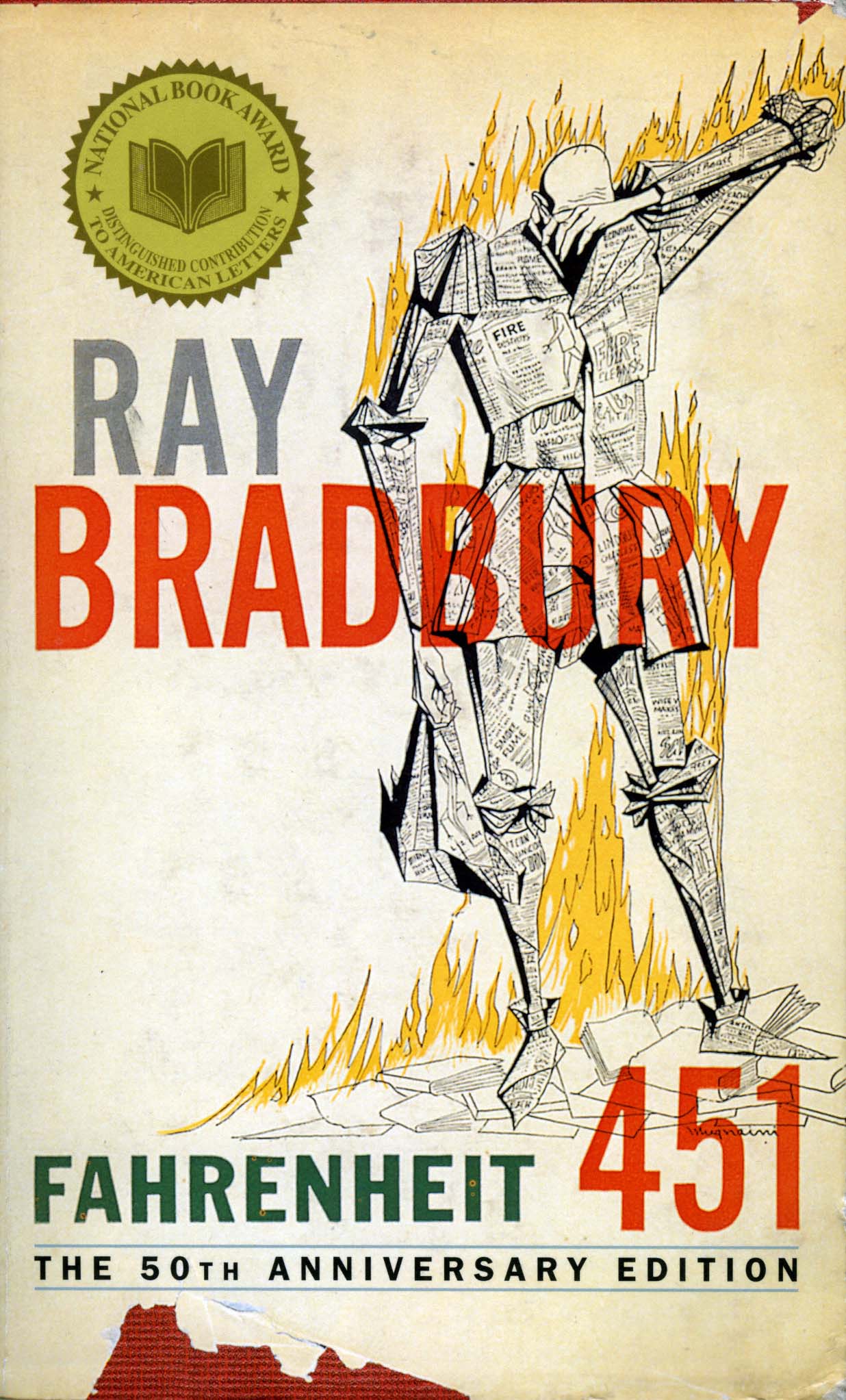
As we move closer to the time period of Ray Bradbury’s “Fahrenheit 451,” the book becomes more intriguing than ever.
The protagonist, Guy Montag, lives in a time when people watch television on wall-sized screens, when children kill others for entertainment, and when firemen start fires instead of putting them out. Montag himself is a fireman, in charge of burning books. Books contain dangerous knowledge that the government wishes to hide. One day, Montag meets a seventeen-year-old girl named Clarisse McClellan. Through her restless questioning and her constant wonder, Montag begins to view life differently andnotice that the world is crumbling around him. Montag’s restlessness and dissatisfaction grow, and he turns to the only solution he can see: the things he once burned, books.
Ray Bradbury’s world bears a startling and disconcerting resemblance to our own. Television screens are growing steadily larger and flatter. We converse through websites such as Facebook or over Skype. We have entertainment options that are arguably more instantly gratifying than reading. We are definitely far away from banning books and burning them, but who knows what may occur in the future?
Ray Bradbury explores these questions, now more relevant than ever, with his probing, illuminating story. The plot twists and turns, throwing surprise after surprise at the reader. It engages one immediately, maintaining a tireless momentum throughout as it hurtles towards its stunning conclusion. Bradbury’s prose, vivid and startling with its surreal imagery, continually shocks and steals the breath of the reader.
The book’s characters are both realistic and larger-than-life. Guy Montag is far from a perfect hero. Though he exhibits considerable bravery, he often judges too quickly and acts rashly. Clarisse is his catalyst for change. While a character like Clarisse, an innocent, free-nature-loving girl, would normally come across as cliché, Bradbury builds her masterfully through his stunning descriptions and believable dialogue. Montag’s wife, Mildred, is Clarisse’s polar opposite. Again, Bradbury succeeds in creating a well-rounded character from a cookie-cutter concept: the ordinary brain-washed citizen. While Mildred’s narrow-minded attitude certainly frustrates and infuriates the reader, one cannot help but sympathize with her and her childish mindset. Captain Beatty, Montag’s enemy, is also a fully-fleshed character, with moments of extreme villainy as well as flashes of humanity.
Through its striking prose, fascinating characters, and startling plot, reading “Fahrenheit 451” is an unforgettable experience. It has much to teach us as our world grows increasingly similar to the one in the book.


Great writing! Concise but detailed. I like how you briefly described the plot but also connected it to modern times and added a bit of your own input. Coincidentally, I am reading Fahrenheit 451 right now for a bit of personal summer reading. Did you hear that Ray Bradbury just died, a few hours ago today at the age of 91?